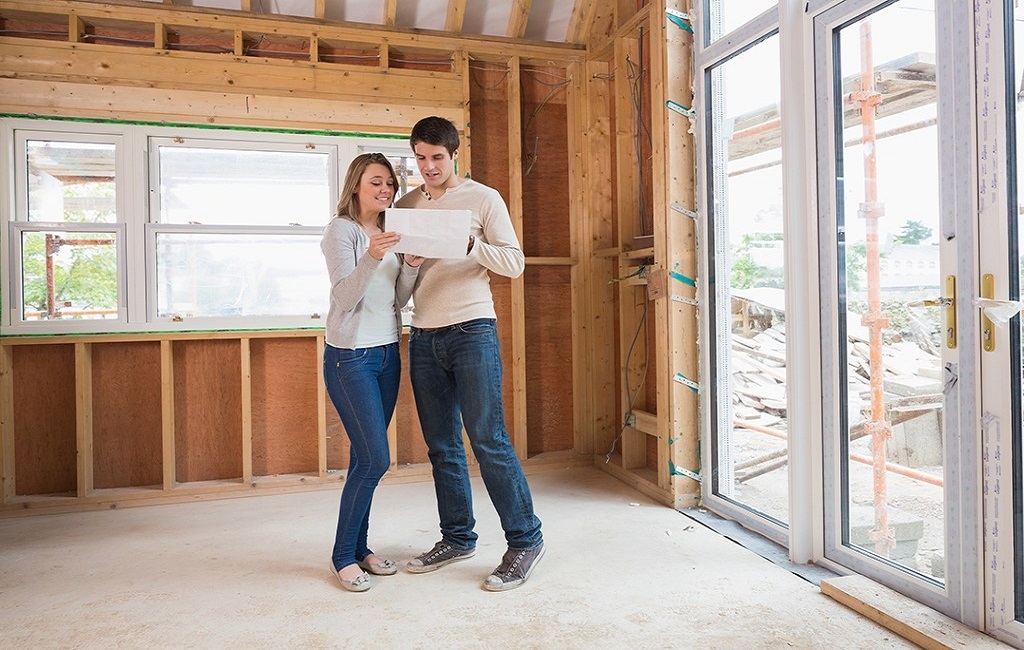
19 Jan 5 Budget-Friendly New Home Construction Tips
You might think that buying land and building your own home is going to be a lot more difficult and expensive than buying a house that is already built. And while the time and effort required for such a project will almost certainly exceed the purchase of a move-in-ready property, it doesn’t necessarily have to be more expensive. In truth, you could end up saving money, both up-front and down the line when you opt to build your own home. But you are going to have to engage in the planning process and put in the man-hours to make it happen. And of course, you’ll have to make wise decisions along every step of the way.
So here are just a few new home construction tips that should help you to set a reasonable budget and stick to it.
-
Get bids.
The first step is to find a builder for your job, and that will require you to get bids from several candidates. But you’re not only looking for the lowest price; in fact, you should probably be suspicious of anyone offering you a deal that seems too good to be true. The builder you choose should be able to provide you with references and show you previous projects so that you can get an idea of the quality of work you can expect. Furthermore, you need to hire a company that is licensed and bonded. And you should probably go with a vendor that you find trustworthy and reliable. It’s a tall order, no doubt, but that’s why you really need to take your time and be sure of your decision.
-
Create a comprehensive contract.
The contract is a legal document that spells out the terms of your agreement. It should include the work to be done, including line by line specifications of anything you have decided upon before building starts, as well as the price (including milestone payments) and timeline you have agreed upon. You should also have stipulations in place for overages in terms of cost and schedule. Keep in mind that the contract is meant to protect all parties involved and serve as a reference in the case of a legal dispute.
-
Go green.
Since you’re building your home from the ground up, you have the rare opportunity to include green amenities without significantly adding to the cost of your project (since you don’t have to undo anything to make your home eco-friendly). Certainly there will be a price for installing a geo-exchange, a residential wind turbine, or a solar array, just for example. But considering that you might otherwise install other types of equipment for power and temperature control systems anyway, you probably won’t incur extreme additional cost for such items. And you stand to save a lot on your monthly utility bills once you move in, so these systems will eventually pay for themselves.
-
Splurge vs. save.
It’s tempting to go with the biggest and the best when you’re building a home from scratch, but it’s important to understand where you’re going to gain and where you might lose when choosing high-end materials. There are certain areas where splurging a bit is advisable. For example, paying a little more for extra insulation and double-paned windows will help you to save on your energy bill and regulate your interior temperature. But overspending on wood for your framing is silly. Using the standard fare will suffice and it’s not something you’ll ever see or enjoy beyond the primary function of providing the inner framework for your home.
-
Know when to DIY.
There are times when you can save by adopting a do-it-yourself attitude. For example, purchasing materials means that you won’t have to pay for the time your builder spends picking things out for you (or the finder’s fee he might charge). And you can probably do some of the finishing work yourself, as well, such as painting, laying carpet, adding fixtures, and so on. But if you’re in charge of finding a crane rental Los Angeles to New York, you try to buy lumber and concrete in bulk, or you decide to do the roofing yourself, you could end up paying a lot more simply because you don’t know what you’re doing. So you need to know when to trust the pros and when to DIY.


Sorry, the comment form is closed at this time.